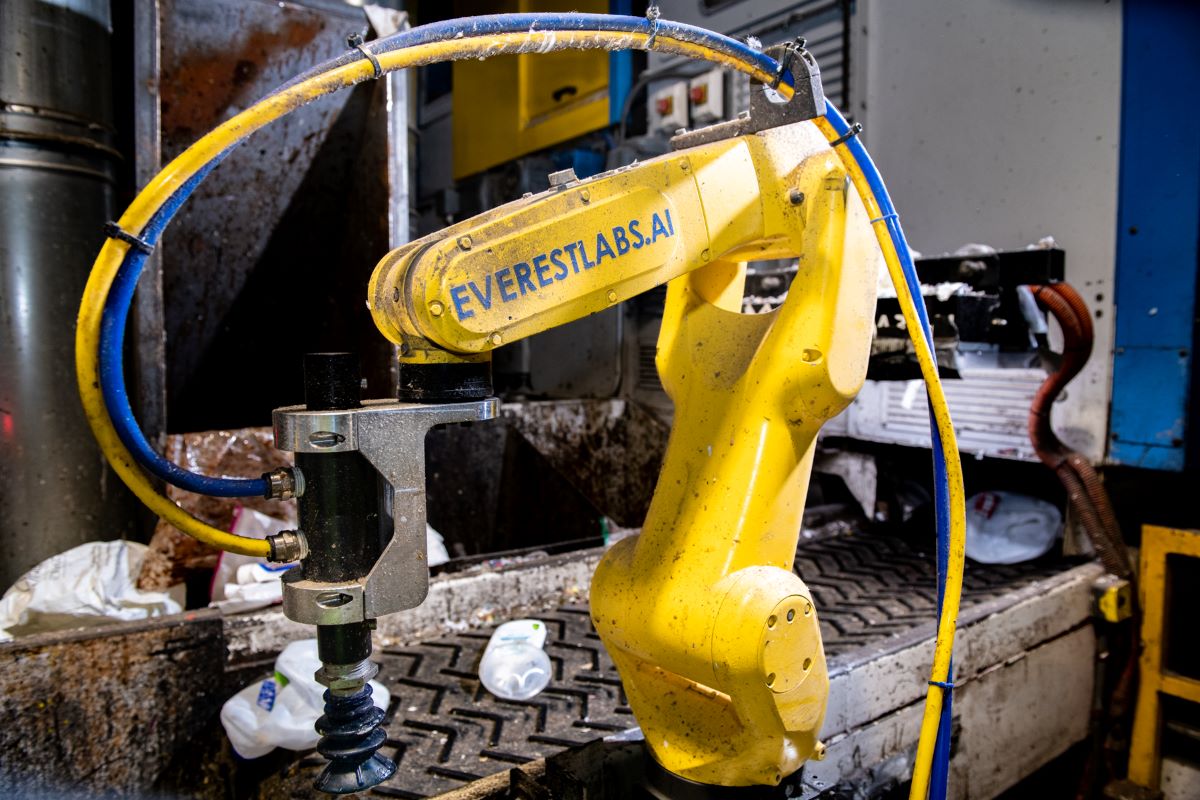
EverestLabs uses robotic arms, AI, machine learning and visioning systems to automate material sorting. | Courtesy of EverestLabs
To address recycled feedstock supply challenges, robotics and AI company EverestLabs says there’s a need to pivot to new technologies.
Sam Kratky, an account executive at the Bay Area, California-based company, said in a July 30 webinar that “this problem of feedstock shortage that we are facing is not going away – and in fact it’s growing.”
“The nuances in which material to recover and how to recycle them is only going to get more complicated as packaging design and recycling collection evolves and we’re really going to need to rely on new technology rather than manual processes to solve this,” she added.
The webinar, “How to Leverage AI for Feedstock Management,” also featured Samir Kamat, an EverestLabs lead solutions engineer. He noted that demand growth for RPET is far outpacing supply growth. A 2023 McKinsey and Company report found that between 2012 and 2022, RPET supply grew about 1% per year, while demand increased 4% each year.
AI and robotics can help with many of the current pain points, he said: the inaccuracy and expense of post-collection sorting, manual labor shortages and high levels of machine downtime due to failure or contamination.
Using AI and robotics can “ideally recover all the lost material from the MRFs and provide high quality feedstock to the reclaimers,” Kamat said, which would “result in a future where the cost of recycled PET would be equal to that of virgin material.”
Kratky added that the technology has also been improving. EverestLabs offers remote monitoring, so “you don’t need to babysit your robots.”
The vision system and image recognition technology detects each object, then stores that data in a dashboard. EverestLabs’ program, RecycleOS, can identify more than 50 different materials, and the team is always working to grow that number, Kratky said.
The data can help MRF operators back up investments, she added, and allow for automatic incoming bale audits, helping MRFs pinpoint where contamination is coming from and improving bale quality.
Fellow recycling technology firm AMP recently made similar points about the benefits of AI in MRFs in its own webinar.